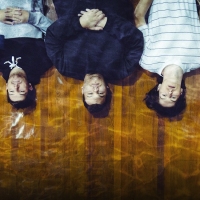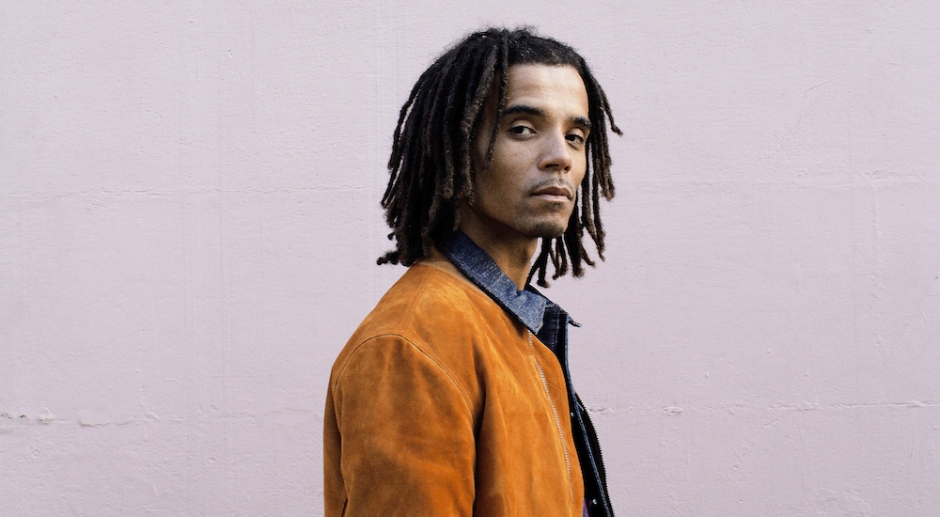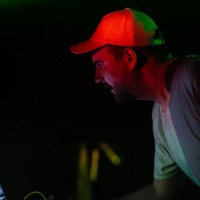 Chasing the Chemical Miracle with Trophy EyesA chat with the Newcastle punks following the release of their spectacular sophomore record.
Chasing the Chemical Miracle with Trophy EyesA chat with the Newcastle punks following the release of their spectacular sophomore record.

Interview: Celebrating Ten Years Of Akala
The BAFTA Award winning hip hop and spoken artist is in Australia for a run of shows.
Words by David Allegretti. Follow him on Twitter - @davidallegretti.
I’m sitting in my backyard rolling a cigarette and watching the time on my phone. 11:13AM. It’s an early December day and, though Melbourne can be a bipolar bitch at times, today it seems to be playing the role; it’s fucking hot and the sun is out in full force. 11:14AM. I put flame to my smoke, sip my coffee, and chuck on some sunnies. 11:15AM. I pick up my phone and type in a series of numbers that connects me to a world just entering winter, a world where the sun has long set. In London it’s quarter past midnight, but the voice that answers on the other end of the receiver is spirited and magnetic.
BAFTA and MOBO Award winning hip hop artist, writer, and historian Akala is exactly as I expect him, warm and welcoming, yet intense. There’s a certain energy about him that is truly unique but at the same time, honest and unforced. He’s about to head over to Australia for the 10 Years Of Akala tour, cataloging a decade’s worth of his best work.
Taking inspiration from the likes of Saul Williams and Gil Scot-Heron, and having toured with Jay Z, Nas and Damian Marley to name a few, Akala's performances have developed a renowned reputation as some of the most dynamic and moving on the planet.
Akala feels like your best mate and favourite uni professor rolled into one. Conversation with the guy is easy, and after a short while of chatting the shit I ask him about his thoughts on my home country, the upcoming tour, and the current fucked up state of the world.
You’ve been to Australia before, are you looking forward to returning?
Yeah I really am, it’s an interesting one for me because it’s as far away from England geographically as possible, yet it seems to be, of all the overseas territories, maybe other than the states, the one where I’ve had the most traction and interest and online following which I think is interesting. It’s almost like I’ve bypassed Europe, and America and Australia seem to be the two places that seem to be the most into what I’m doing at this point, not that there’s no one in Europe but there’s definitely seems to be more of a core underground following in Australia than say France or Germany to a certain degree.
What’s your favourite Australian city?
So far I’ve only been to Melbourne, Sydney, and Brisbane and there’s things I liked about both Melbourne and Sydney. I was in Sydney for longer so I got to know more people in Sydney, but there’s a 50/50 between the two. I was hanging out with a really cool activist group in Footscray called Black Voices, which is like a conglomerate of various different members of predominantly the African diaspora rather than indigenous Australians. I’ve worked with both groups and it’s interesting because even that experience with the difference between being an overseas African immigrant versus an indigenous Australian, there seems to be a really interesting dynamic, and I think race in Australia is unique – class everywhere in the world is the same, some people have, some people don’t; there’s extremity to it as an injustice but one of the things I find fascinating about race is that in every place I’ve been in the world, even the definition of how people understand what is and isn’t black and what is and isn’t white is different, and that’s one of the dynamics in Australia I found fascinating in its own way.
In 2010 you toured with Nas and Damian Marley, what did you learn from them?
They’re two incredible artists with an incredible legacy, two of the most important artists in their respective genres so to get to support them was an honour and also just the craft, the stage show, the catalogue – the sheer amount of great songs that both of them have; it was just an amazing experience. I think just the seriousness of their craft was the main thing I took from it. They’re both very successful and I’m sure neither of them has been struggling financially for quite some time, but yet, to still take their craft so serious and do it every day and be dedicated to it – the way they put on a show said a lot to me about how they take the craft, the show started on time every day, it was clearly very well rehearsed, it was just a really professional set up and I admire that because a lot of artists get to a certain level and they don’t still have the craft.
How do you keep your hunger? Do you ever just wake up and be like fuck it I’m staying in bed I can’t be fucked doing anything today. Do you push through that or do you give yourself that time to chill?
I’m very bad at giving myself time to chill. Look, everyone has up and down days, we all have days where we’d rather stay in bed than do anything but I think, partly because of how I grew up and partly because of how I view the world – and this isn’t a judgment on anyone else – but I tend to not give in to that part of myself simply because I look at what my parents had to do for a living. They both spent a significant portion of their adult lives doing jobs they hated just to put food on the table, so I feel very conscious that I’m an incredibly privileged person – I make music for a living and I write books and I do a whole bunch of other shit that I love doing. So even days when I would just rather stay in bed I kind of feel like you spoilt git get the fuck out of bed.
And maybe that’s not the healthiest way to look at it, because you know just because you have a privileged job doesn’t mean you don’t have the right to feel upset some days, and that’s what the song Sometimes was about. I tend not to take my own downers very seriously and maybe like I said that’s not the healthiest way to go about it because we gotta respect that we are all just human and if you don’t pay attention emotions sometimes they can come back and bite you in the ass. But I am an optimistic person most of the time.
With all the crap that’s going on in the world it’s hard to stay optimistic, or at least I find I have some days where my confidence in humanity is lacking to say the least. Are you optimistic about where we as a collective people are heading? Are we going to survive the next few decades?
I’m not sure, I don’t feel particularly optimistic about humanity, but I don’t think you have any other choice but to meet that with a certain degree of almost naïve positivity. There is every chance that we are going to destroy the entire fucking planet and one another. That is absolutely possible and I would suggest that anyone who thinks that isn’t a possibility isn’t paying attention. But that’s beyond my control, I don’t have enough power, I don’t have a magic wand, I can’t reverse climate change, I can’t stop a nuclear holocaust, I can’t stop humans killing each other and all that bullshit. All of that is beyond my power so there’s almost a certain acceptance that there’s every chance we might destroy everything, but you know what we might not. And as much as humanity is fucked up, humanity is also brilliant in its own way and so I find inspiration as much as I am conscious of the very real dangers that we present to one another and to this planet that we happen to be on.
You’ve mentioned the many parallels between Australia and Britain in terms of treatment of asylum seekers, how do you feel about Australia’s use of offshore detention centres?
We have a similar issue in the UK, I don’t know whether it is to the same extent but I have read about it and, look, disturbed isn’t the right word because unfortunately I know how the world works so when I see brutality and xenophobia and fear of the other I’m not surprised. It’s ugly to see and it’s a shame that humanity is that way. I am familiar with a bit of the history of the country so it’s unsurprising but it’s still a shame. Like I said there are no utopias, it is a difficult and complex issue. It’s strange the way that societies always tend to blame the people with the least power, which I find fascinating. It’s an almost universal trait of human cowardice.
You go all around the world and you see that the people at the bottom of society without the wealth or privilege or standing to control the society often get the blame for the ills of the society.
Let’s step away from the darkness and talk about the upcoming tour, what can we expect?
It’s a tenth anniversary show so it contains a lot of material from the last ten years, I’m not just touring my last album, which means that the show is really high intensity, there’s not very many songs where I even have time to do the whole song so we’ve pre mixed it all so it’s almost like mash ups so the intensity is just bang bang bang bang bang for long periods, then there’s spoken word in it where we take the energy down so I’m really proud of the craft of the show and it worked really well in the UK so I’m interested to see how much of the material people know in Australia.
Take me back to when you were younger, was this always going to happen – were you always going to be the rapper, the poet, the writer you are today or was there a point in which your consciousness kind of shifted toward that?
Well it’s always something I wanted to do, but see when I was younger being a UK hip hop artist as a living wasn’t realistic – and a lot of people don’t get this now because UK hip hop both locally an internationally is doing quite well, like when I go to schools in the UK now and I say to kids who’s your favourite rapper? Almost exclusively they say someone from the UK, but when I was their age that just wasn’t the case, it was all American artists, it just didn’t seem like a realistic career choice. Thankfully that’s changed so I always wanted to do it but like I said it didn’t always seem possible so looking back now a part of it is just luck – I’m alive at the right time, a lot of really talented artists didn’t get a chance to be alive when this thing called the internet existed or at least be at the peak of what they were trying to do when the internet existed, so it meant that a whole generation of talented UK hip hop MCs didn’t get a chance to speak to the world ‘cause they lived in a time when they couldn’t get on MTV and radio wasn’t playing UK hip hop, only American, so it’s a really interesting time to be a hip hop artist.
Your third album DoubleThink is a reference to George Orwell’s 1984, and you do a weekly book review on your YouTube and Facebook page, what do you think are the top five essential reads for every human on the planet?
If you ask me this question on a different day I’d probably give you a different answer, but for now I’m going to go for The Awakening of Intelligence by Jiddu Krishnamurti, Before the Slave Trade by Robin Walker my teacher, The Glass Bead Game by Hermann Hesse, One Hundred Years of Solitude by Gabriel Garcia Marquez, and I’m gonna go for Song of Solomon by Toni Morrison.
If you could teleport anywhere where would you go right now?
Probably Thailand, that’s somewhere I’d go to relax quite a lot and practice a bit of Muay Thai and I find martial arts very therapeutic. I’ve always had a thing where I’ve wanted to do a year-long tour of all the major kind of martial arts countries in Asia. So Silat in Indonesia, maybe Wing Chung or some other form of Kung Fu in china, Muay Thai in Thailand. I would love to do that for a year, I’m not a very sit on the beach and chill out kind of guy, I’m quite active, so even when I’m not making music some form of training or fitness is my idea of a holiday. But you know I love Jamaica which is where my family is from, it has its own challenges and issues but it’s a place I love to go back to. I’ve been to so many great places in the world and I’ve realised that everywhere really has something to offer, even places people wouldn’t assume. And there are no utopias, there just really aren’t, even the Scandinavian countries which have gotten pretty close as far as human societies go in terms of life expectancy and wellbeing and crime rates but you know people there are still depressed, people there still have alcohol and drug problems. Nothings perfect, humans are dealing with the same shit to varying degrees everywhere. Now Harare in Zimbabwe is a fantastic place which gets a lot of bad press but actually if you’ve been there it’s a very beautiful city, lovely jacaranda trees, it’s very well constructed, the people are lovely… there’s just loads of great gems; places that I’ve been fortunate enough to go to that I maybe wouldn’t have gone to if I wasn’t working there that I wish people would see the other side of.
TOUR DATES:
Sat Dec 10 || Newtown Social Club, Sydney (TICKETS)
Sun Dec 11 || Nortcote Social Club, Melbourne (TICKETS)
Fri Dec 16 || Edinburgh Castle, Adelaide (TICKETS)
Sun Dec 18 || Rosemount Hotel, Perth (TICKETS)
Follow Akala: FACEBOOK
 Chasing the Chemical Miracle with Trophy EyesA chat with the Newcastle punks following the release of their spectacular sophomore record.
Chasing the Chemical Miracle with Trophy EyesA chat with the Newcastle punks following the release of their spectacular sophomore record.
 Machinedrum And The Journey To Human EnergyWe chat to the American producer off the back of his latest album, Human Energy.
Machinedrum And The Journey To Human EnergyWe chat to the American producer off the back of his latest album, Human Energy.